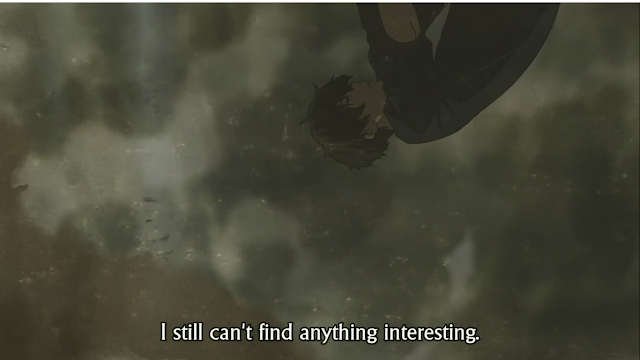A thing is a verb
If you can answer how a thing is a verb, then you have a language spanning philosophy and psychology; a language relating how a thing becomes a process.
Let me put it in more mundane terms. A person is diagnosed with a disorder. They go to a doctor, who prescribes them medicine to chemically normalize symptomology of the disorder. Why?
Because the reasoning to prescription proceeds from all manner of assumptions - involving an ontological magisteria (the neurobiochemical) as well as a causal magisteria (behaviors). The reasoning thus involves both thing and process: the thing is the composition; the process is what the thing does or undergoes.
That, however, is too limiting a metaphysics, for it also harbors another assumption: a thing is not in itself process; there is an exclusive disjunction between the two. Traditional philosophy would, according to Derrida and Levinas at least, be violent in this regard, for it programmatically makes things about being. Things, processes, all being. Psychology would go the same route: behaviors, being, causality in terms of stimulus and response.
Things and verbs, things and processes.
How does one get well from a disorder? What is the relation between a thing, a state, an identity, and a process, a movement, a dynamism?
What is a disorder?
What is man?
What is? What isses? What is issing? What is? When you say a rose is a rose is a rose, where do you start rosing?
This is the precise problem of the ancients, the problem of the one and the many. You cannot step on the same river twice, and all that.
Unless, of course, you hijack the entire reasoning and say that the thing itself is a process, in which case there would be no thing itself. No it, no self, as such. No as such. (Derrida and Heraclitus, you are bastards.)
If you are not your disorder, then what are you, and what is it? Are two essences involved here, two things, co-habiting, intermingling? How? Where then, is causality? Is there one? How do the essences become what they are? Nature and nurture, yes, but in order to even make sense of that argument, you have to start with a thing, and with a process, and also end with a thing, and a process.
How are things processes?
As I said, if you can answer how a thing is a verb, then you have language spanning philosophy and psychology, without, hopefully, resorting to either thing or process. You would have solved the problem of personal identity, metaphysics, and disorders.
Let me put it in more mundane terms. A person is diagnosed with a disorder. They go to a doctor, who prescribes them medicine to chemically normalize symptomology of the disorder. Why?
Because the reasoning to prescription proceeds from all manner of assumptions - involving an ontological magisteria (the neurobiochemical) as well as a causal magisteria (behaviors). The reasoning thus involves both thing and process: the thing is the composition; the process is what the thing does or undergoes.
That, however, is too limiting a metaphysics, for it also harbors another assumption: a thing is not in itself process; there is an exclusive disjunction between the two. Traditional philosophy would, according to Derrida and Levinas at least, be violent in this regard, for it programmatically makes things about being. Things, processes, all being. Psychology would go the same route: behaviors, being, causality in terms of stimulus and response.
Things and verbs, things and processes.
How does one get well from a disorder? What is the relation between a thing, a state, an identity, and a process, a movement, a dynamism?
What is a disorder?
What is man?
What is? What isses? What is issing? What is? When you say a rose is a rose is a rose, where do you start rosing?
This is the precise problem of the ancients, the problem of the one and the many. You cannot step on the same river twice, and all that.
Unless, of course, you hijack the entire reasoning and say that the thing itself is a process, in which case there would be no thing itself. No it, no self, as such. No as such. (Derrida and Heraclitus, you are bastards.)
If you are not your disorder, then what are you, and what is it? Are two essences involved here, two things, co-habiting, intermingling? How? Where then, is causality? Is there one? How do the essences become what they are? Nature and nurture, yes, but in order to even make sense of that argument, you have to start with a thing, and with a process, and also end with a thing, and a process.
How are things processes?
As I said, if you can answer how a thing is a verb, then you have language spanning philosophy and psychology, without, hopefully, resorting to either thing or process. You would have solved the problem of personal identity, metaphysics, and disorders.


Happy Birthday @)---`----
ReplyDelete